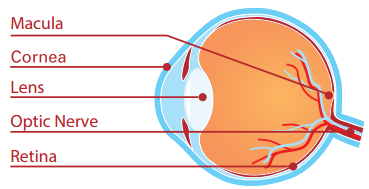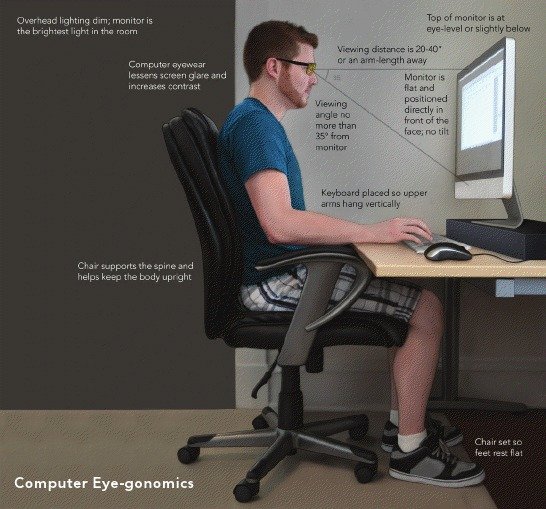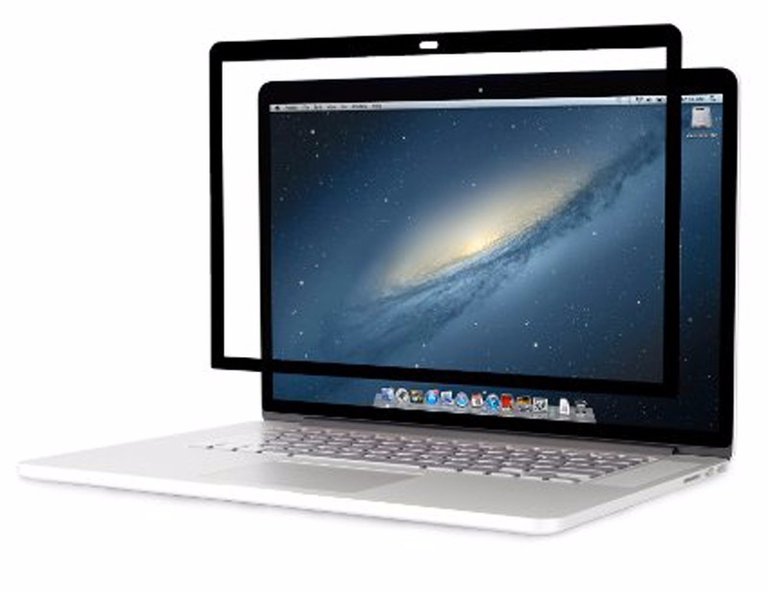Hello Steemians!
In @HealthcaReport we care about your health! So we wanted to share this tips that will help you to take care of your eyes while using you pc or laptop, because we want you to remain happy and healthy while using steemit!!
First of All we will make a little introduction about your eyes, and after we will finish with 5 awesome tips that will save you hundreds of dollars in visits to the ophthamologist if done properly! :)
So lets Start:
We can see in this picture below a little bit of the Anatomy of the Human Eye:

On of the main parts of the eyes that we need to take care about are the cornea, the retina and the macula. But mainly we will focus on the retina because it is one of the parts most affected by screens light.
The retina, is a part of the eye that has the fuction to receive light that the lens has focused, convert the light into neural signals, and send these signals on to the brain for visual recognition. It is formed by cells that can be damaged by blue light or blue-violet light, as Mayo Clinic States.(2)
It is important to understand this, because besides laptops and PC`S show some level of radiation of UV rays or X rays, it is so little that it is not significant. What is really significant id the amount of blue light that is produced by this screens.
Blue light exposure you get from screens is small compared to the amount of exposure from the sun. And yet, there is concern over the long-term effects of screen exposure because of the close proximity of the screens and the length of time spent looking at them. According to a recent NEI-funded study, children’s eyes absorb more blue light than adults from digital device screens.
Almost all visible blue light passes through the cornea and lens and reaches the retina. This light may affect vision and could prematurely age the eyes. Early research shows that too much exposure to blue light could lead to:
DIGITAL EYESTRAIN: Blue light from computer screens and digital devices can decrease contrast leading to digital eyestrain. Fatigue, dry eyes, bad lighting, or how you sit in front of the computer can cause eyestrain. Symptoms of eyestrain include sore or irritated eyes and difficulty focusing.
RETINA DAMAGE: Studies suggest that continued exposure to blue light over time could lead to damaged retinal cells. This can cause vision problems like age-related macular degeneration.(3)
So lets stop making you worry about watching your laptop or PC right now! Our aim here at @HealthcaReport is that you can use your pc with all its benefits by minimizing the harmful effects that can have in the long term.
So here we let you with 5 tips that if followed properly, can lead you to a healthy and long term good vission:

1-KEEP YOUR DISTANCE: If your computer is too close to your face, your eyes will have to strain to stay focused. However, you don’t want your screen to be too far away either. Keep your monitor just below your eye level and about 20 to 28 inches away from your eyes. This is considered the optimal spot by researchers. Also, if you find yourself too close to the computer you can try enlarging the text while reading, so you can read information from larger distances.
2-MINIMIZE SCREEN TIME: Try to decrease the amount of time spent in front of these screens and/or take frequent breaks to give your eyes a rest. One common advice is to use the 20-20-20 rule, which meand that each 20 minutes of constant observation of the screen to need to take at least 20 seconds to rest your eyes and check what is at least 20 feets away from you. You can even set up an alarm for this and take this minute for a short break :)
3- USE FILTERS: Screen filters are available for smart phones, tablets, and computer screens. They decrease the amount of blue light given off from these devices that could reach the retina in our eyes.

4- USE COMPUTER GLASSES: Computer glasses with yellow-tinted lenses that block blue light can help ease computer digital eye strain by increasing contrast.
5- USE INTRAOCULAR LENS (IOL): After cataract surgery, the cloudy lens will be replaced with an intraocular lens (IOL). The lens naturally protects the eye from almost all ultraviolet light and some blue light. There are types of IOL that can protect the eye and retina from blue light.
Thanks and God Bless You!
Follow us at: @HealthcaReport
Image Sources:
1-https://www.preventblindness.org
2-https://www.theatlantic.com
3-https://www.alibaba.com
Information Sources:
1-https://allabouteyes.com/work-computer-day-take-care-eyes/
2-https://mayoclinichealthsystem.org/hometown-health/speaking-of-health/protect-your-eyes-from-harmful-light
3-https://www.preventblindness.org/computers-and-your-eyes
4-https://www.healthline.com/human-body-maps/retina
Good information
Thanks @steemit.socio for your comments!
God Bless Us All!